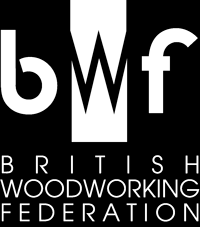Accoya is a modified timber that is produced using a process called acetylation. Acetylation enhances the natural properties of wood, making it more durable and resistant to moisture, decay, and pests.
Accoya is made from radiata pine trees. The acetylation process takes place in a pressurised chamber where the wood is exposed to acetic acid. This process changes the molecular structure of the wood, making it more water-repellent and resistant to biological attack.
Accoya is incredibly durable and dimensionally stable. It is also highly resistant to moisture, decay, and pests, and has a 50-year rot-free guarantee. This makes it the ideal choice for a wide range of joinery applications, from windows and doors to staircases and even bespoke conservatories and orangeries.
Accoya has a beautiful natural finish that can be stained or painted to match any style. It is also easy to maintain and repair.
Accoya is a sustainably sourced, Class 1 durable, Cradle to Cradle Gold CertifiedTM timber. In fact, it was among the first building products to achieve this high level of certification. This award means Accoya is fully circular, and the process of making it adds nothing to the wood that is not naturally present. As a result, the timber can be recycled and is completely biodegradable. In addition, we only use Accoya, which is Forest Stewardship Council (FSC) certified to ensure responsible forestry managed to strict environmental, social and economic standards. This guarantees beautiful, ethical joinery crafted to endure. Read more about our commitment to sustainability.
uPVC is a popular material for windows and doors, but it comes with a number of disadvantages compared to Accoya. uPVC is not as durable as Accoya and is more susceptible to warping and cracking over time. The average uPVC window only has a 10-year warranty, whereas Accoya offers a minimum 50-year rot-free guarantee. uPVC is also not as sustainable as Accoya and can be difficult to repair or recycle.
Contact Falkingham Joinery today to learn more about how Accoya can be used in your next bespoke joinery project.
Have a question about the benefits and possibilities offered by Accoya that isn't answered here? Get in touch and we'll be happy to help.
We also stock a large quantity of Accoya and Tricoya wood, and we sell it to the public as well as the trade. Simply contact us with your requirements, and we will be happy to provide you with a quote.
Yes, Accoya can be painted or stained like any other type of wood. However, it is important to use a high-quality paint that’s specifically designed for Accoya.
We exclusively use high-performance, water-based Anker Stuy paints, developed specifically for use on Accoya. Our state-of-the-art spray booth allows us to apply long-lasting, factory-quality finishes that protect your beautiful joinery for decades to come, with almost unlimited colour choice, in a single integrated finishing process.
Accoya wood undergoes a unique process called acetylation, where radiata pine is treated with acetic anhydride, akin to treating it with vinegar. This prevents water absorption at the cellular level, giving it many of the properties of a hardwood while retaining the benefits of a softwood, such as superior thermal performance.
This process addresses the core issue of water absorption in wood, which often leads to rotting, warping, splintering, and insect infestation. By halting these issues, acetylation yields Accoya wood that remains dimensionally stable over time, without common wood deteriorations.
Wood is a natural product which tends to expand, contract and warp when wet, due to changes along the grain. By altering the molecular structure of the wood, acetylation reduces these tendencies significantly, making Accoya the perfect choice for bespoke joinery projects.
This means windows, doors and other products made with Accoya can remain as accurate and pristine as the day they were installed. Falkingham Joinery is committed to using Accoya in all of its products to ensure customers receive the highest quality, longest-lasting bespoke joinery available.






